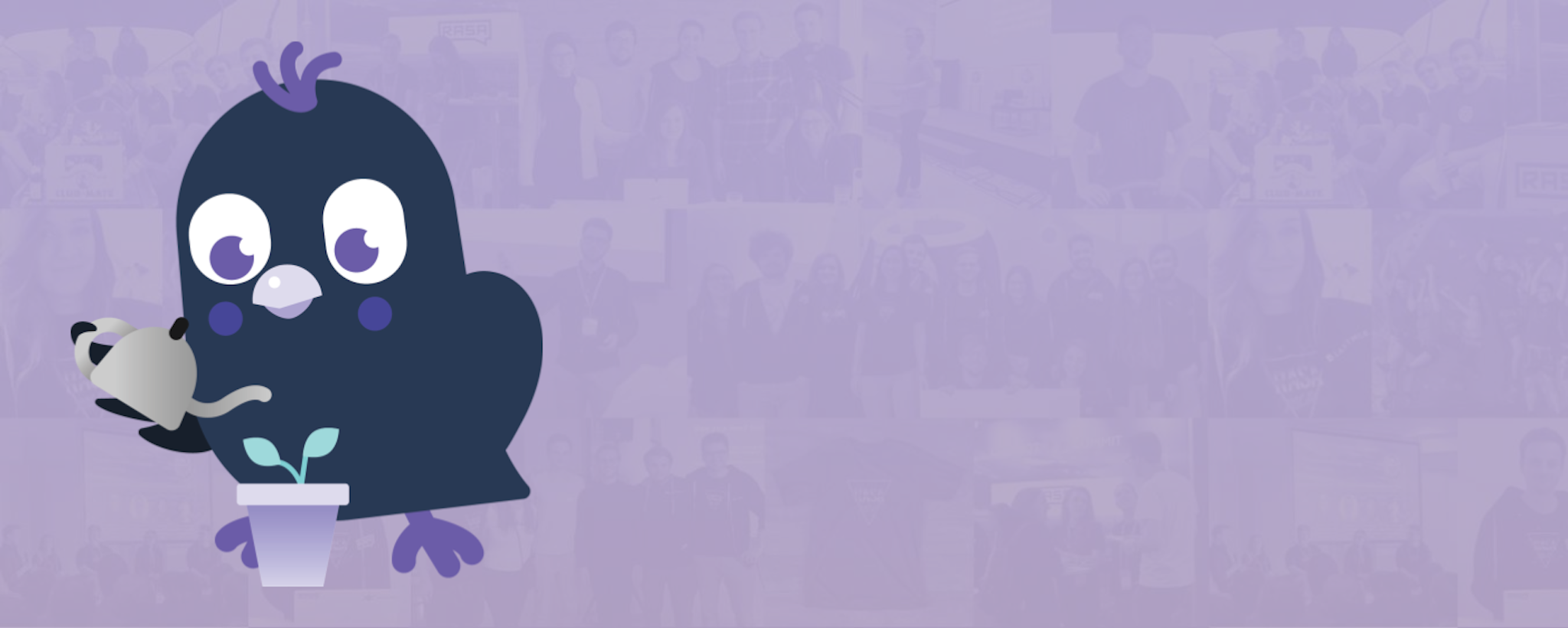A little over a month ago we announced the very first Rasa Developer Survey and today we're sharing the results back with you, the community!
Why did we want to run a survey?
As the developer relations team was talking about all the possible different projects we could work on, we realized that there were a lot of things we didn't know about our community as a whole. For example: how many of our developers are developing on Windows? What machine learning frameworks are the most popular? Inspired by the StackOverflow developers survey and Kaggle Machine Learning and Data Science survey we figured the best way to make sure we had accurate information was to ask.
What are we going to do with the results?
First, share them back with the community! You can find a question-by-question breakdown of the results here. (While we would have liked to share the raw data, unfortunately the responses were too diverse for us to ensure k-anonymity for a k > 5 while still being meaningful.) Second, we'll use the information to help guide our decision making about what will be most helpful for the community. For example, we learned that many of you use LinkedIn for professional growth, so we've started prioritizing posting there more frequently. Or, since many of you would be interested in becoming contributors but haven't made a contribution yet, we'll be releasing more content focusing on helping you get started.
How often will we run the survey?
It's hard to say right now, but most likely yearly.
Now to the good part: the results! A big thank you to each of the 352 Rasa community members that completed the survey.
Note that many questions allowed respondents to select all the options that applied so the percentage of respondents that picked each option may add up to more than 100.
Survey results
🌏 No surprise here, but the Rasa community is a global one. There are 59 countries represented, and the top three countries were India (29%), the United States (11%) and Germany (9%).
💼 Most of you (69%) use Rasa at work, and a plurality (60%) of you work in the technology industry. Your most common roles at work are developer/software engineer (58%), followed by data scientist (37%) and researcher (20%).
🛠️ Your most-used machine learning libraries are TensorFlow (62%), SpaCy (53%) and Keras (51%). In terms of other conversational AI tools, while many of you (38%) have only ever used Rasa, others have also used DialogFlow (42%) or Watson (18%).
🏫 16% of Rasa developers are students. Hope your studies are going well! :)
🖥️ The most popular operating system is Linux (71%), followed by Windows (58%) and Mac OS (34%). We also got a lot of feedback that the Windows developers experience could use some improvement & heard you loud and clear.
📁 Far and away the most popular way to install Rasa is using pip install (84%). Only 6% of you prefer to build from source.
📑 Your favorite platforms for learning and staying up to date are blog posts (64%), videos (54%) and LinkedIn (47%).
🤝 The most popular platforms for professional collaboration are GitHub (65%), Slack (54%) and forums (46%). Speaking of forums, the majority of you both read and post on the Rasa forums (54%), but a fair number also read without posting (34%).
🔓 Finally, a big shout out to the 14% of respondents who are already Rasa contributors! And for the 66% of you who are considering becoming one one in the future, we'd be delighted to have you. You can find a GitHub board with good issues to get started with here.
Other feedback
We also included a section for freeform feedback. While we won't be sharing it verbatim, I thought it would be helpful to share a quick summary of some of the most-repeated themes so you know that we heard you and are taking it into consideration.
First, there were a lot of requests for more examples and step-by-step tutorials for deploying your assistants in different platforms.
Second, many of you asked for more example projects that showcase different features that Rasa offers and show how a more complex bot might come together.
Third, many folks mentioned that you had found the documentation confusing or insufficient for your needs at some point. (The custom actions section in particular came up more than once.) We're always working to improve our docs and appreciate the feedback.
